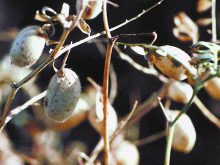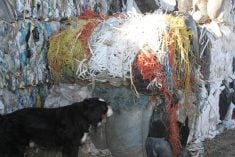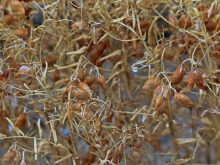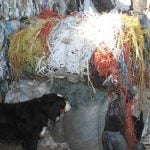A global chemical company headquartered in Australia that built its business on manufacturing and selling off-patent herbicides is continuing to expand its share of the Canadian market.
NuFarm Agriculture is still breaking new ground in the Canadian marketplace, says Yvonnick Jambon, the company’s Canadian general manager.
NuFarm has expanded Canadian sales to $100 million a year since setting up shop in Calgary 12 years ago, he said.
And growing concerns over herbicide resistant weeds is expected to increase the use of phenoxy type herbicides, he added.
Read Also

Message to provincial agriculture ministers: focus on international trade
International trade stakeholders said securing markets in the face of increasing protectionism should be the key priority for Canada’s agriculture ministers.
“NuFarm is a company based on herbicides … and the core product we have is 2,4-D and MCPA,” said Jambon.
“We’ve come across resistances … (and) we’ve got some new innovations in the marketplace that need 2,4-D or MCPA to go with to complete the spectrum of action. These products are more than ever up to date and indeed are a great help to farmers.”
Although 2,4-D and MCPA have never disappeared from Canada’s agricultural landscape, their use has declined.
Phenoxies were once considered go-to products in the farmer’s chemical arsenal, but their use began to drop with the emergence of new chemical types such as bromoxynils and glyphosates.
However, Jambon said phenoxy use is on the rise again as companies mix herbicides to overcome weed resistance.
NuFarm has manufactured 2,4-Ds and MCPAs at its Calgary plant since the late 1990s.
The company supplies generic phenoxies to major chemical companies for inclusion in their brand name products.
It is also expanding its own line of products and now has close to two dozen herbicides to control grassy and broadleaf weeds.
Products include Cordon, which contains the same active ingredients as Puma Super; Signal, a clodinafop product that is the same as Horizon; and CleanStart, a popular burn-down product that combines carfentrazone and glyphosate.
Use of CleanStart, which controls volunteer canola, has increased considerably over the past few years
Commercial manager Grant Deveson said the product was used on nearly two million acres in Western Canada last year.
NuFarm also markets other companies’ products in Canada, using a distribution network with retail sales points throughout the West.
The company recently acquired Canadian marketing rights for sulfentrazone, a Group 14 herbicide that received full Pest Management Regulatory Agency registration last year for use on peas, lentils, chickpeas, flax and sunflowers.
It is manufactured by American chemical company FMC Corp. and is marketed in Canada as Authority.
Western Canadian pulse growers had waited until last year for a product to control Group 2 resistant weeds such as kochia, wild buckwheat, lamb’s quarters and red root pigweed.
Jambon said NuFarm will continue to focus on its core products – phenoxies – and focus its growth strategy on developing new product formulations and expanding the life cycle of old off-patent chemistries.
Thirty percent of the company’s business is based on new product formulations and 70 percent on off-patent chemistries.
The company is also hoping to expand its presence in other segments of the farm chemical market such as fungicides and insecticides.
Jambon said one of company’s key objectives isto increase NuFarm’s visibility in Western Canada.















